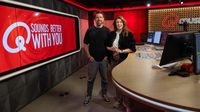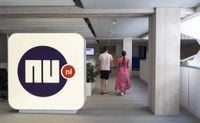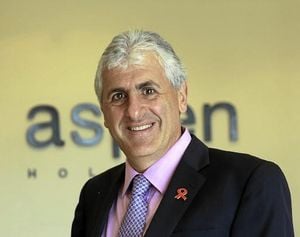DPG Media, the Belgian parent company of popular media outlets including Qmusic, JOE, and newspapers like the Volkskrant and AD, is celebrating a strong financial year in 2024. CEO Erik Roddenhof expressed pride in the company’s achievements, stating, "Never before have we achieved such high market shares. Financially, it was a top year." This optimism comes despite a slight decline in overall profit due to rising operational costs.
In its annual report released on April 17, 2025, DPG Media reported a profit of over 185 million euros, a decrease of 3.6 percent from the previous year’s 192 million euros. This dip was attributed to increased personnel and distribution costs. Nevertheless, the company plans to distribute 40 million euros in dividends to shareholders, maintaining the same payout as the previous year.
Roddenhof highlighted the importance of adapting to the fast-evolving media landscape, stating, "2024 was a good year for DPG Media, but the media world is changing rapidly, and the digitalization is racing ahead. We cannot sit still." To this end, DPG Media is set to invest over 400 million euros in digital development over the next three years, aiming to enhance the user experience across its platforms.
The company’s robust performance can be partly credited to the popularity of its radio stations, particularly Qmusic and JOE, which saw their market share in the Netherlands rise from 26.2 to 28.7 percent. This increase is largely due to the national reach of JOE, which has been broadcasting across the country since September 2024.
DPG Media’s total revenue increased by 2.5 percent, surpassing 1.7 billion euros, bolstered by a 6 percent growth in online services. The revenue from news media also saw a 3.4 percent increase, while magazine revenues experienced a 4 percent decline. Digital subscriptions rose by 12 percent, contributing to the overall increase in reader revenue, which climbed by 1.4 percent to 814 million euros.
Despite these positive figures, DPG Media faces challenges, including rising costs associated with salaries, distribution, and digital innovation. The company’s adjusted profit, accounting for interest and taxes, fell by 1 percent to 348 million euros. This highlights the ongoing pressures within the media industry as it navigates the complexities of digital transformation.
In addition to its radio and print ventures, DPG Media has shifted its focus primarily to the Dutch and Belgian markets following the sale of Berlingske Media, a Danish media group, at the end of the previous year. The company employs over 5,000 individuals across various platforms, including magazines like Donald Duck and Libelle, and digital services such as NU.nl and Tweakers.
Roddenhof expressed confidence in the company’s future, emphasizing the commitment to enhancing digital offerings and adapting to changing consumer behaviors. "Our radio creators are passionate professionals who have built our stations from the ground up to become the most listened-to stations in Belgium and the Netherlands," he remarked.
The media landscape is undoubtedly shifting, with streaming services and podcasts gaining ground. However, DPG Media sees radio as a "hidden gem" that continues to thrive despite these challenges. Roddenhof remarked, "It is still an incredibly popular medium, hardly affected by the rise of streaming services and podcasts." This sentiment reflects the enduring appeal of traditional media formats even as digital platforms proliferate.
Looking ahead, DPG Media is poised to capitalize on its strengths while addressing the challenges posed by rising operational costs. The company’s strategic investments in digital development are expected to yield improvements in user engagement and revenue generation, positioning it for sustained success in the competitive media environment.
As the media world continues to evolve, DPG Media’s ability to adapt and innovate will be crucial in maintaining its market position and delivering value to its stakeholders. With a clear vision for the future and a commitment to enhancing its offerings, the company aims to navigate the complexities of the modern media landscape effectively.







